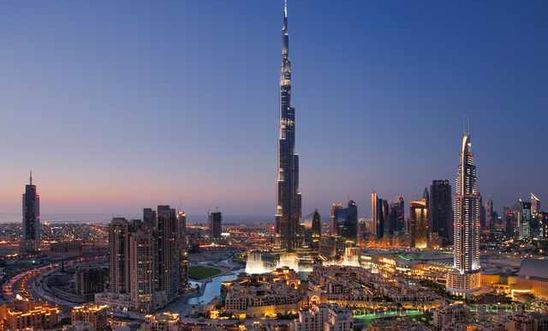
Press releases
New report exposes 'sinister' side to UAE's glitzy image

‘Beneath the façade of glitz and glamour, a far more sinister side to the UAE has emerged showing the UAE as a deeply repressive state’ - Hassiba Hadj Sahraoui
Report published ahead of Grand Prix in Abu Dhabi
Report raises case of former Warwick University student Dr Mohammed al-Roken, subject of new Write For Rights campaign
Scores of activists in the United Arab Emirates (UAE) have been harassed, arrested and in some cases tortured in custody, according to a new report published today (18 November) by Amnesty International that sheds light on the repressive tactics used by the UAE government to silence critics.
The 66-page report - ‘There is no freedom here’: Silencing dissent in the UAE - lifts the lid on the climate of fear that has taken hold in the country since 2011, with the authorities going to extreme lengths to stamp out any sign of dissent, criticism or calls for reform in the wake of the mass popular uprisings in the Middle East and North Africa.
More than 100 activists and government critics have been targeted, including lawyers, university professors and students, some of whom are linked to the Reform and Social Guidance Association (al-Islah), a peaceful grassroots organisation that the government claims has links to Egypt’s Muslim Brotherhood. The clampdown has also targeted their family members. Over 60 people are already behind bars, and further intimidation tactics employed by the authorities include revoking the nationality of government critics and punishing their families by appearing to block their access to career or educational opportunities. Some of those jailed have said they were tortured and ill-treated, describing how interrogators had pulled out their fingernails, beaten them severely and suspended them upside down for long periods, torn hair from their beards and chests, and threatened them with electric shock torture, rape and death.
Amnesty’s report shows how the justice system in the UAE is neither independent nor impartial, with courts often appearing to do little more than rubber-stamp the decisions of the UAE executive. Defendants are often denied access to lawyers and the right to appeal their verdict. In many cases proceedings have relied on forced “confessions” to convict defendants, in contravention of international human rights law.
The report, published ahead of the Formula One Grand Prix in Abu Dhabi this weekend, exposes the huge gulf between the public image the UAE tries to project of a dynamic, modern and burgeoning economic power - home to luxury hotels, skyscrapers and designer shopping malls - and the darker reality of critics routinely persecuted and subjected to enforced disappearance, torture and other ill-treatment.
Amnesty International Middle East and North Africa Deputy Director Hassiba Hadj Sahraoui said:
“Beneath the façade of glitz and glamour, a far more sinister side to the UAE has emerged showing the UAE as a deeply repressive state where activists critical of the government can be tossed in jail merely for posting a tweet.“Millions of spectators from across the world are expected to tune in to watch the Abu Dhabi Formula One Grand Prix this weekend - yet most of them will have little clue about the ugly reality of life for activists in the UAE.“The scale of the crackdown has been chilling and the truth is that the UAE’s dreadful treatment of activists critical of the government, and their families, has gone largely ignored by the world. It is time for the UAE’s international allies to stop turning a blind eye to the rampant abuses by the authorities and to place human rights firmly before business interests.”
Clampdown sparked calls for reform and democracy
The clampdown on dissent was sparked by a petition from a group of 133 people addressed to the authorities in March 2011, calling for political reform and for the right to vote and elect a parliament. Since then, more than 100 peaceful activists and government critics have been prosecuted or jailed in politically-motivated moves using national security or cybercrimes offences. More than 60 continue to languish in prison, serving sentences of up to 14 years.
Cases
Dr Mohammed al-Roken, 52, a prominent human rights lawyer and former Warwick University student who for years was a target of government harassment because of his criticism of the UAE’s human rights record and his advocacy of democratic reforms. Al-Roken is serving a ten-year prison sentence following a deeply-flawed mass trial of 94 activists before the State Security Chamber of the Federal Supreme Court - widely known as the “UAE 94” trial. Amnesty considers Al-Roken a prisoner of conscience and is campaigning for his release as part of its new Write For Rights campaign.
Activist Osama al-Najjar, 25, who was arrested in March after he tweeted comments expressing concern over the ill-treatment of his father, Hussain Ali al-Najjar al-Hammadi, and other political prisoners held at al-Razeen Prison in Abu Dhabi. After arrest, Al-Najjar was held in solitary confinement where he says he was punched and beaten repeatedly all over his face and body, and threatened with electric shocks. Al-Najjar’s father is serving an 11-year jail sentence after being convicted under vaguely-worded national security charges following two unfair mass trials. He was held in solitary confinement for eight months in conditions amounting to enforced disappearance following his arrest in 2012.
Calls on the UAE authorities
Amnesty is urging the UAE authorities to publicly condemn torture and take effective measures to prohibit and prevent all forms of torture and other ill-treatment, as well as to independently and impartially investigate all allegations of torture and hold perpetrators to account. Amnesty’s report also calls on the UAE authorities to urgently overhaul its laws that criminalise the peaceful exercise of the rights to freedom of expression and association, including the cybercrimes law and a repressive new anti-terrorism law passed in August.
The UAE authorities have responded to the concerns raised by Amnesty in this report by saying that the promotion of human rights is an “ongoing process”.